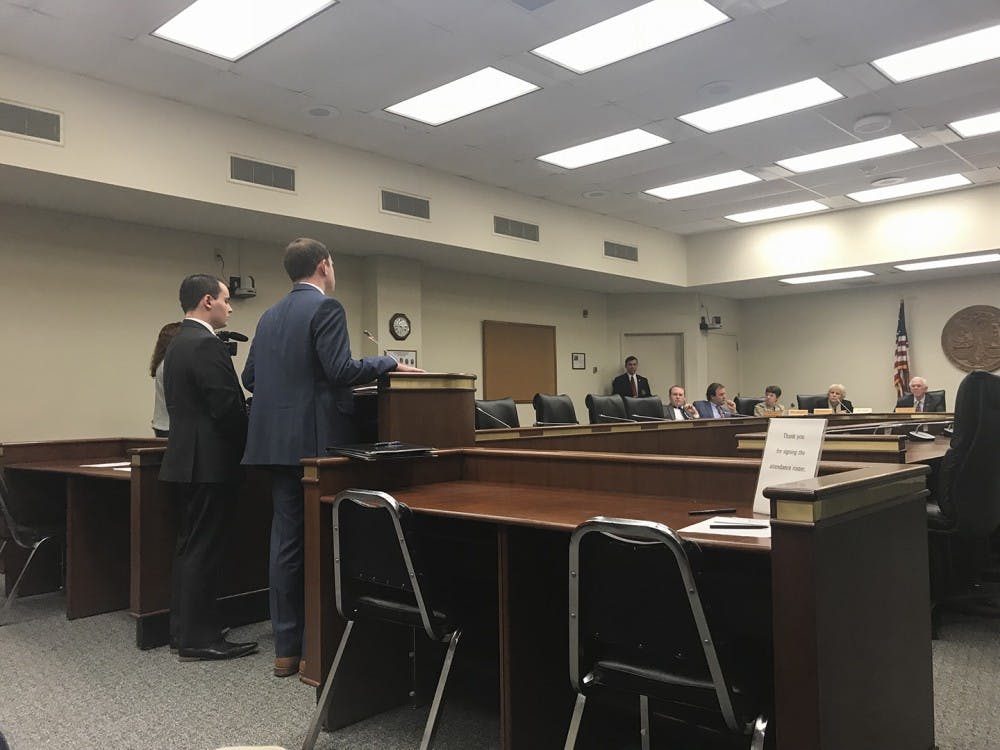Student Government officials testified at the South Carolina Statehouse on Tuesday to advocate for a student vote on the USC Board of Trustees.
Fourth-year public health student and Student Body President Ross Lordo spoke before the Higher Education Subcommittee of the South Carolina House Education and Public Works Committee along with his Secretary of Government Relations, fourth-year political science student Nick Santamaria.
“The reasoning behind this bill is to give the 50,000 students that are in the USC system a vote at the table. So, right now the student body president can go and sit at board meetings, they can give their input, but when they … make motions, they don't have a say,” Santamaria said. “They have to rely that all of the board members are going to present their interests in their entirety, and I don’t think that’s probably always the case.”
This push has been a priority for Student Government since Lordo began his term as student body president. Santamaria has been instrumental in finding all of the minute details to strengthen their case and persuade state legislatures to pass the bill.
“I think data’s the most powerful tool that we can have,” Lordo said when discussing the next steps for this bill after the hearing. “I think we need to go back and talk to more universities and continue to try to put facts in front of the narrative."
Passing this bill through state legislature has been a complex process from the beginning. Nevertheless, Lordo is encouraging current and future Student Government members to remain persistent.
“Never give up on an idea," Lordo said. "You face a lot of red tape, not just in the institution, but across the state. You’re empowered in your position to really be a voice for everyone.”
A big part of the hearing revolved around Lordo and Santamaria convincing the subcommittee of the bill’s necessity. The pair was adamant that giving Lordo voting rights on the Board would be extremely beneficial in communicating the student point of view.
“It gives students the ability to express themselves in a tangible way ... While one vote's not going to change the whole outcome it showcases students’ opinions and shows at the end of the day what was the students' perspective on this,” Lordo said.
In Lordo's mind, Student Government is an important part of student life at USC whose purpose is to cultivate student involvement and leadership skills while simultaneously accomplishing major goals for students.
“The only way to guarantee that the student voice will be heard, not just for today, but for years to come, is to codify student participation through permanent trusteeship,” he said in his testimony in front of the subcommittee.
To showcase the difference between USC and other universities, Lordo shared that “at least 31 states and the District of Columbia give a student trustee the right to vote on their respective boards.”
Without a voting student trustee on the Board, Student Government executives believe there is a large disparity between the student population and the representatives on the Board.
“When we talk about representatives on the Board of Trustees, on average it has been 38 years since a member of the current University of South Carolina Board of Trustees was an undergraduate student,” Lordo said. “For a point of reference, 38 years ago today Jimmy Carter was the president of the United States, we were in the midst of the Cold War and I was not born for another 16 years.”
When Lordo was asked about the future of Student Government and the legacy he was leaving behind, he said that he is hoping this will set a foundation for students as this bill is pushed forward in the next five years.
“I think that this issue is more than just a Student Government thing. I hope the legacy of this is that future students continue to push and ask why they aren’t a part of the conversation,” he said.

